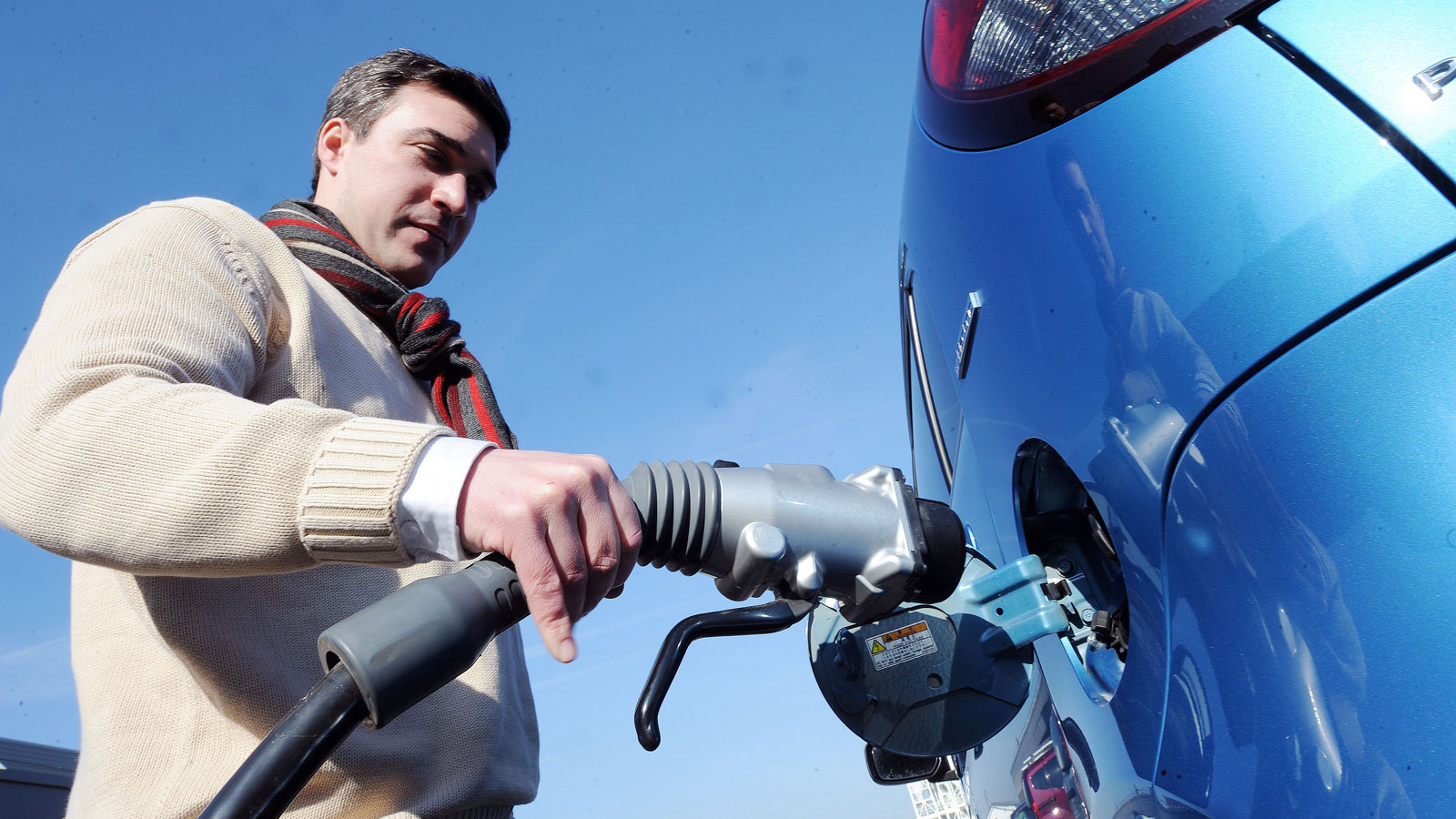Even Canada Has More Ambitious Emissions Goals Than The U.S.
The government north of the border will halt the sale of gas-powered cars in 2035.
I'm new here, but I hear there's a bit of a rivalry between Americans and Canadians, is that right? I imagine it's similar to how the rest of the world knows it's better than the UK. So how about a bit of inter-country rivalry to spice up your day? Even Canada has more ambitious emissions targets than the USA.
Yep, Canada. Let that sink in.
While the U.S. has been faffing around with electric vehicle tax credits and state-by-state regulation of emissions, other countries have been getting their act together.
In the European Union, countries will ban the sale of gas-powered cars in 2035, giving manufacturers more than 10 years to sort out their electric ranges. Meanwhile, The UK and The Netherlands have gone one (or five) steps further by announcing plans to scrap the sale of gas and diesel vehicles from 2030, and hybrids by 2035.
And now Canada has hopped on the bandwagon with the news that it, too, will cease the sales of gas-powered cars in 2035.
According to the Canadian government, a sales mandate will be put in place to "ensure at least 20 percent of new light-duty vehicle sales will be zero-emission vehicles by 2026." This will rise to 60 percent by 2030 and 100 percent by 2035.

Lawmakers north of the border are also targeting medium- and heavy-duty vehicles in the new regulations, albeit not in the same sweeping manner.
For these kinds of vehicles, Canada will require 35 percent of medium- and heavy-duty vehicles sold to be zero-emission by 2030. Additionally, a certain "subset of vehicle types based on feasibility" will be required to be 100 percent zero-emission by 2040.
But what that subset of vehicles is, Canada hasn't said.
On top of these bans, Canada has strengthened its support for new EV buyers, as the cost of a new electric car is often much higher than its gas-powered counterpart. As such, the Canadian government has announced CA$400 million ($320m) of additional funding for zero-emission vehicles charging stations, and pledged CA$1.7 billion ($1.4bn) to extend the incentives for zero-emission vehicles.
Meanwhile, here in the land of the free, automakers are practically begging the federal government to extend tax credits for electric vehicles. Credits that, currently, don't even apply to all electric vehicle makers.
And what about the future of gas-powered cars here in the home of the brave? Well, that doesn't look to be coming under threat any time soon.

Sure, 12 states have come out swinging to try and get gas-powered cars off the road, but federally the response has been damp at best. States like California, New York, Hawaii, North Carolina and Oregon would all like to cease the sale of gas cars by 2035.
But, if you live in one of these states and really want a new combustion engined car, it's not a lot of effort to hop to a nearby state that still sells them.
If America is serious about its fight to reduce emissions and cut global temperature rises, then it needs to get serious about this.
America needs a solid charging infrastructure for electric vehicles, support to make EVs more affordable to people who actually rely on their cars for work, and it needs to start stemming the sale of gas-powered cars.
Come on, America.
